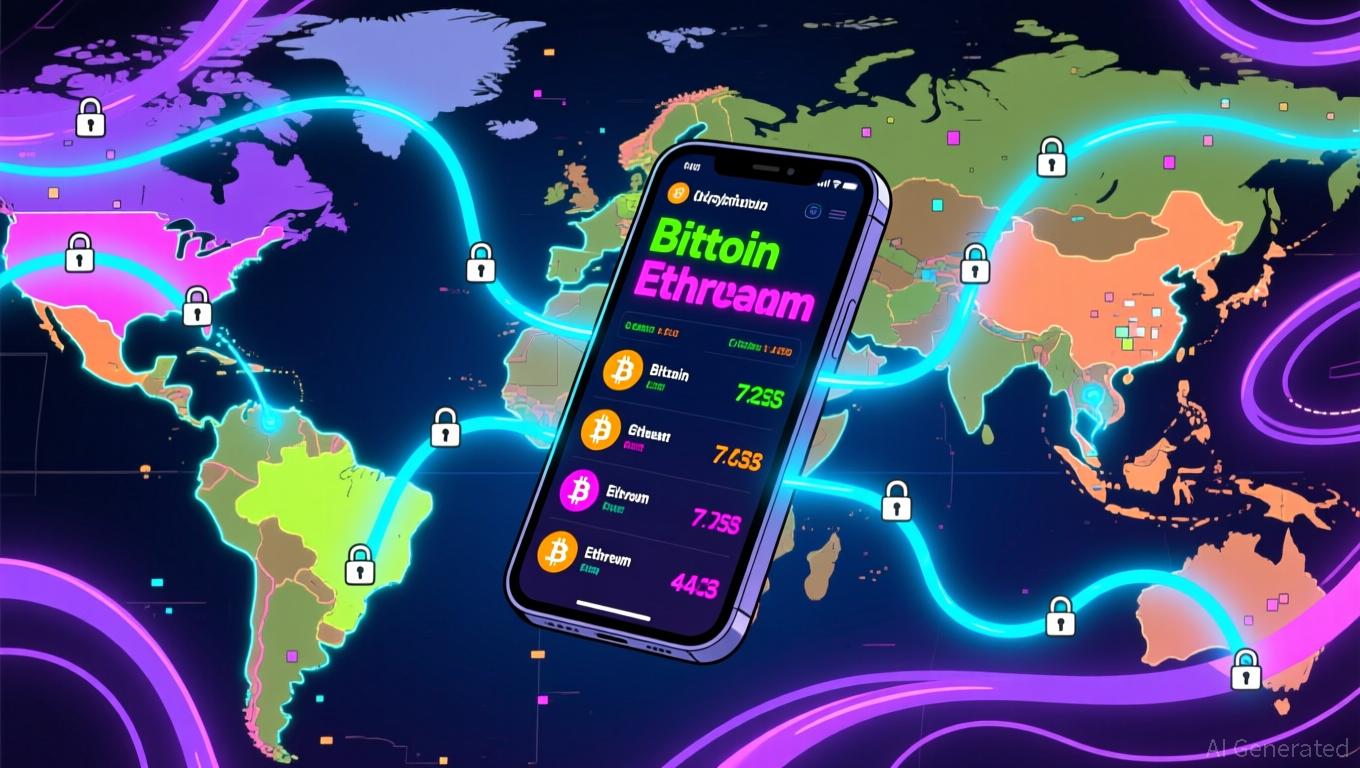Bolivia Turns to Stablecoins for Economic Stability and to Attract Investment
- Bolivia accelerates stablecoin integration into its financial system to stabilize the economy and attract investment, allowing banks to offer crypto-based services as legal tender. - The policy follows 2024's crypto ban removal, addressing currency depreciation and aligning with President Paz's market-oriented agenda to reverse economic stagnation through $9B in multilateral loans. - Gold mining formalization and a public-private gold bank aim to ensure environmental compliance, while fiscal reforms incl
Bolivia's administration is moving quickly to incorporate stablecoins into the official financial sector, as part of a comprehensive plan to boost economic stability and draw in investors. Economy Minister José Gabriel Espinoza revealed that this initiative will permit banks to provide crypto-related products like savings accounts, credit cards, and loans, making stablecoins a recognized payment method.
This program is a key element of President Rodrigo Paz's pro-market reforms, designed to counteract the economic slowdown brought on by years of heavy state intervention and nationalization by the former government. At present, Bolivia is

This move mirrors a wider trend across Latin America, where countries are dealing with both economic uncertainty and the expansion of decentralized finance. While some, like Spain, are introducing strict crypto taxation, Bolivia is opting for a more open stance. Espinoza's team is also working to formalize the gold mining industry and overhaul fuel subsidies by shifting distribution to private companies, with state-run YPFB continuing operations in isolated regions.
Bolivia anticipates re-entering global credit markets by late 2026 or early 2027, with $5 billion in multilateral loans designated for private sector initiatives. The government has emphasized its autonomy from IMF influence, maintaining authority over debt decisions while staying receptive to discussions. Espinoza stressed that default is not being considered, especially with a $333 million eurobond payment due in March 2026.
The adoption of stablecoins will likely attract attention from international regulators and investors, but it highlights Bolivia's commitment to updating its financial system in a challenging economic climate. As the country manages this shift, the effectiveness of its crypto-forward policies will depend on striking a balance between fostering innovation and maintaining regulatory controls, ensuring digital assets contribute to stability rather than increased risk.
Disclaimer: The content of this article solely reflects the author's opinion and does not represent the platform in any capacity. This article is not intended to serve as a reference for making investment decisions.
You may also like
Bitcoin Updates: Meme Coins Evolve: Shifting from Trend to Foundation
- Shiba Inu (SHIB) stabilizes near $0.0000081 amid 20,000%+ burn rate spikes and $5B market cap rebound. - AlphaPepe (ALPE) gains traction with 3,700+ holders via instant delivery, staking, and $5.81M presale surge. - Bitcoin's golden cross and potential Fed rate cuts fuel broader crypto optimism , with SHIB's $0.0000078–$0.0000085 support zone critical. - Meme coins shift from hype to structured participation, emphasizing functional tokenomics and real-time governance tools like Polymarket.

CryptoAppsy: Experience Instant Access—No Registration Needed, Perfect for Fast-Moving Markets
- CryptoAppsy offers real-time crypto price tracking and alerts via iOS/Android, requiring no account creation, targeting global users in Turkish, English, and Spanish. - Market volatility drives demand for instant data, contrasting with subscription-based models, as seen in GoPlus's 717M monthly API calls and WEEX's 100% APR promotions. - Competitors like BI DeFi emphasize security upgrades post-$15B breach, highlighting crypto's growing focus on risk mitigation alongside innovation. - CryptoAppsy's succe

Ethereum Latest Updates: Buterin's Railgun Transaction Ignites Privacy and Pre-Sale Discussion as ETH Reaches $3,000
- Vitalik Buterin transferred $2.9M ETH to privacy protocol Railgun as Ethereum surged past $3,000, triggering speculation about liquidity events. - On-chain analysts highlight Railgun deposits' historical link to pre-sale activity, though Buterin's 0.4% stake transfer doesn't inherently signal selling. - Buterin's $738.6M ETH holdings and recent privacy advocacy, including his "privacy is hygiene" stance, frame the transaction's strategic context. - Market reactions remain divided between regulatory hedgi

Thailand Closes Worldcoin Due to Unlawful Exchange of Biometric Data for Cryptocurrency
- Thailand ordered Worldcoin to halt operations and delete biometric data from 1.2 million users, citing PDPA violations involving iris scans for crypto tokens. - Authorities raided a Bangkok scanning center in October 2025, arresting employees for operating an unlicensed exchange and highlighting data leakage risks. - Worldcoin paused services in Thailand, denying wrongdoing, while the WLD token dropped to $0.6172 amid global regulatory crackdowns in Colombia, Spain, Brazil, and Kenya. - Regulators worldw